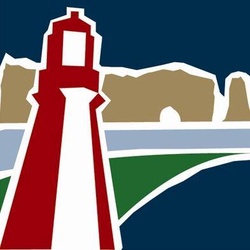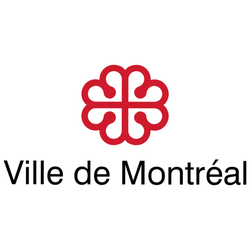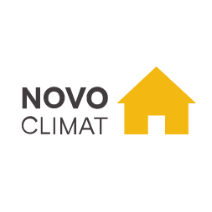
Open
MRC du Rocher-Percé — Investment Fund (FLI) and Local Solidarity Fund (FLS)
Last Update: October 27, 2025
QC, Canada
Supports business development and growth in the MRC du Rocher-Percé
Grant and Funding
Loans and Capital investments
At a glance
Funding available
Financing goals
Selling in a new market
Renovate your business/factory
Improve employee retention
See more
Eligible Funding
- Maximum amount : 150,000 $
- Up to 50% of project cost
Timeline
- Unspecified
Eligible candidates
Eligible Industries
- All industries
Location
- Le Rocher-Percé
Legal structures
- Non-profit
- Public or Parapublic institution
- For-profit business
- Social economy enterprise
- Non-financial cooperative
Annual revenue
- All revenue ranges
Organisation size
- All organization sizes
Audience
- Rural or Northern Residents
- Canadians
- Startups
Non-profit candidates
Sector of operation
- Culture and Arts
- Sports
- Other Recreation and Social Clubs
- Environment
- Economic, Social and Community Development
- Employment and Training
- Children and Youth Organizations
- Diversity and Inclusion
Target groups
- General public
- Children & youth
- New immigrants & refugees
- Rural / Remote communities
- Business owners / entrepreneurs
- Artists / creatives
- Nonprofits / charities
- Academia / students
- Low-income individuals / families
Revenue structures
- Mixed revenue (50%+ earned)
Scope
- Local
- Municipal
- Regional
Overview
The MRC du Rocher-Percé — Investment Fund (FLI) and Local Solidarity Fund (FLS) provide financial support of up to $150,000 to businesses and eligible organizations for projects that drive economic development, job creation, and entrepreneurship within the region. Eligible activities include business start-up, acquisition, expansion, diversification, commercialization, and the implementation of innovative or structuring projects.
Activities funded
- Starting or acquiring a business, including entrepreneurial succession projects.
- Business expansion and diversification initiatives to increase revenues, productivity or create jobs.
- Commercialization efforts, such as developing innovative marketing strategies, launching e-commerce platforms, or enhancing web presence.
- Feasibility studies, market analysis, development of strategic plans, and other project validation studies.
- Support for innovative startups with high growth potential, especially in technology sectors.
Eligibility
- The company must have a place of business on the territory of the MRC du Rocher-Percé.
- The business must be legally constituted and hold a Quebec Enterprise Number (NEQ).
- The company can be a private business, a cooperative, or a non-profit recognized as a social economy enterprise, depending on the project.
- The project must demonstrate a positive impact on job creation or retention, show potential for profitability and development, and be evaluated for market potential and local competition.
- For certain activities, the applicant must be at least 18 years old, be a Canadian citizen or permanent resident, and reside permanently in Quebec.
Who is eligible?
- Legally constituted for-profit businesses with their principal place of business in the MRC du Rocher-Percé
- Cooperatives recognized as social economy enterprises
- Non-profit organizations recognized as social economy enterprises
- Private companies (except those in the financial sector and other explicitly excluded industries)
- Businesses whose economic activities generate direct economic benefits and jobs in the MRC du Rocher-Percé (even if the head office is outside the MRC)
Who is not eligible
- Private financial sector companies and financial cooperatives.
- Businesses registered on the Register of Enterprises Not Eligible for Public Contracts (RENA).
- Bars, video clubs, arcades, franchises (such as Tim Hortons, McDonald's, etc.), flea markets, pet breeding businesses.
- Trucking and taxi companies, travel agencies or websites, home product distribution, tattooing and piercing, vaping.
- Companies in the cannabis and industrial hemp industry related to recreational products, unlicensed products, or additional cannabis-derived products such as edibles, topicals, concentrates, tinctures, or capsules.
- Private companies operating solely in retail and restaurant sectors (except for proximity services in underserved communities).
- State-owned companies or those majority-owned by a government, including municipalities and organizations managing government programs.
- Companies involved in armaments, fossil fuel (unless for low-carbon transition), gambling, violent sports, sexual exploitation, or tobacco/drug sales and services.
- Businesses primarily involved in real estate management and development (except for projects improving tenant living conditions).
- Companies under bankruptcy or insolvency protection or with a significant ethical or legal compliance breach.
Eligible expenses
- Capital expenditures such as acquisition of land, buildings, equipment, machinery, and rolling stock.
- Costs for incorporation and similar administrative expenses for establishing an entity.
- Acquisition of technologies, including know-how, licenses, manufacturing agreements, patents, software, and similar technology-related expenditures.
- Working capital strictly related to business operations, calculated for the first year for some programs and up to two years for others.
- Acquisition costs of shares, ownership interests, or business assets (in the context of business acquisition or succession).
- Professional fees directly tied to the project (e.g., for expansion, diversification, analysis, or feasibility), including consulting, expertise, or external audits when justified as part of the project.
- Salaries and social charges specifically dedicated to the realization of a specific time-limited project (for certain NPOs and organizations).
- Costs for the acquisition of technology solutions, software, or business management tools necessary for the project.
- Other direct costs inherent to the planning and completion of the approved business project.
Eligible geographic areas
- Businesses and organizations established on the territory of the MRC du Rocher-Percé (Québec).
Selection criteria
- Economic viability and long-term profitability of the project.
- Demonstrated market potential and competitive positioning.
- Potential for job creation or employment retention in the territory.
- Alignment with the strategic priorities and development objectives of the MRC.
- Efforts made to secure complementary funding from other partners or sources.
How to apply
1
Initial contact and eligibility check
- Contact the economic development advisor at the MRC
- Obtain and complete the official fund application form
- Ensure your project and business satisfy basic eligibility criteria
2
Prepare and collect required documents
- Gather all required documents according to business type: business plan or opportunity file for startups, succession plan for takeovers, or executive summary and financial statements for businesses over two years old
- Prepare three-year financial forecasts
- Assemble any other supporting documentation required for thorough analysis
3
Submit application to the MRC
- Submit the completed application form and supporting documents to the economic development advisor at the MRC
- Submission can be done in person, by email, or by mail
4
Project analysis and preliminary evaluation
- The MRC conducts a preliminary eligibility check and analyzes the project's financial, qualitative, and entrepreneurial potential
- The applicant may be invited to a meeting and site visit
- MRC may issue a conditional letter of financial collaboration, if needed
5
Committee decision and council approval
- The investment committee reviews the application and makes a funding decision in accordance with current policy
- The results are submitted for council approval if required
6
Sign the protocol agreement
- A protocol agreement is signed between the MRC and the beneficiary
- The agreement defines the terms and modalities for the payment of financial support
Additional information
- Recipients of financial support are required to maintain their business location within the MRC du Rocher-Percé for a specific period following grant or loan approval, or repay funds proportionally if this condition is not met.
- A protocol agreement outlining the terms and obligations of the financial support must be signed before any funds are disbursed.
- On projects involving new construction, renovation, or major equipment acquisition, specific funding limits and reimbursement formulas apply and may require additional documentation.
- All funded projects must provide permanent visibility for the MRC du Rocher-Percé, following the MRC's visibility policy.
Contacts
dpitre@rocherperce.qc.ca
QC, Canada
Apply to this program
Frequently Asked Questions about the MRC du Rocher-Percé — Investment Fund (FLI) and Local Solidarity Fund (FLS) Program
Here are answers to the most common questions about the MRC du Rocher-Percé — Investment Fund (FLI) and Local Solidarity Fund (FLS). This section explains what the program is, how much funding is available, eligibility requirements, application deadlines, and other important details to help you determine if this grant is right for your business.
What is the MRC du Rocher-Percé — Investment Fund (FLI) and Local Solidarity Fund (FLS)?
How much funding can be received?
Who is eligible for the MRC du Rocher-Percé — Investment Fund (FLI) and Local Solidarity Fund (FLS) program?
What expenses are eligible under MRC du Rocher-Percé — Investment Fund (FLI) and Local Solidarity Fund (FLS)?
Who can I contact for more information about the MRC du Rocher-Percé — Investment Fund (FLI) and Local Solidarity Fund (FLS)?
Where is the MRC du Rocher-Percé — Investment Fund (FLI) and Local Solidarity Fund (FLS) available?
Is the MRC du Rocher-Percé — Investment Fund (FLI) and Local Solidarity Fund (FLS) a grant, loan, or tax credit?
Apply to this program
More programs like this

Wage Subsidies And InternsOpen
Employee Wage Subsidy
Gouvernement du QuébecSubsidy to hire people having trouble finding work in Quebec

Loans and Capital investmentsClosed
Program Supporting the Development of Tourist Attractions — Stream 2
Investissement Québec (IQ)Fund to renovate hotels and create new tourist accommodation facilities in Quebec

Loans and Capital investmentsClosed
Program Supporting the Development of Tourist Attractions — Stream 1
Investissement Québec (IQ)Loans to develop Quebec tourist attractions

Grant and FundingOpen
Economic development program to help revitalize territories (DEPART)
Investissement Québec (IQ)DÉPART supports economic diversification and growth in targeted areas

Grant and FundingOpen
Energir — Energy efficiency program – Efficient Renovation
EnergirSupports business building envelope renovations to improve energy efficiency

Grant and FundingOpen
LogisVert — Financial assistance for installers
Hydro-QuébecLogisVert offers incentives for energy-efficient installations in Québec

Grant and FundingOpen
Energir — Energy efficiency program - Efficient construction
EnergirSupports energy-efficient construction and renovation for businesses in Quebec

Grant and FundingOpenClosing Soon
Commerce-Montreal
City of Montreal (MTL)Financial support for renovating commercial spaces in Montréal

Grant and FundingOpen
Novoclimat — Construction professionals — Small Multiple-Unit Buildings
Gouvernement du QuébecFinancial support for Novoclimat certified contractors

Grant and FundingExpert AdviceClosed
Competitiveness and Environment Program - Component 1
Ministry of Agriculture, Fisheries and Food (MAPAQ)Supports dairy and meat processors' competitiveness and environmental improvements
Sign up to our platform to access the MRC du Rocher-Percé — Investment Fund (FLI) and Local Solidarity Fund (FLS) information sheet for free
Get access to 4,000+ programs, practical guides, personalized alerts, and an AI assistant to support your grant applications.